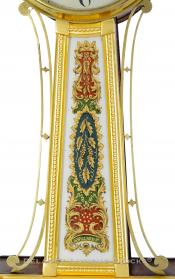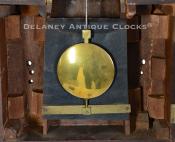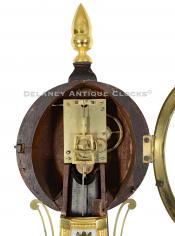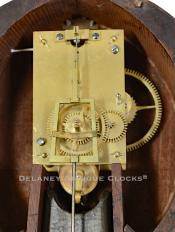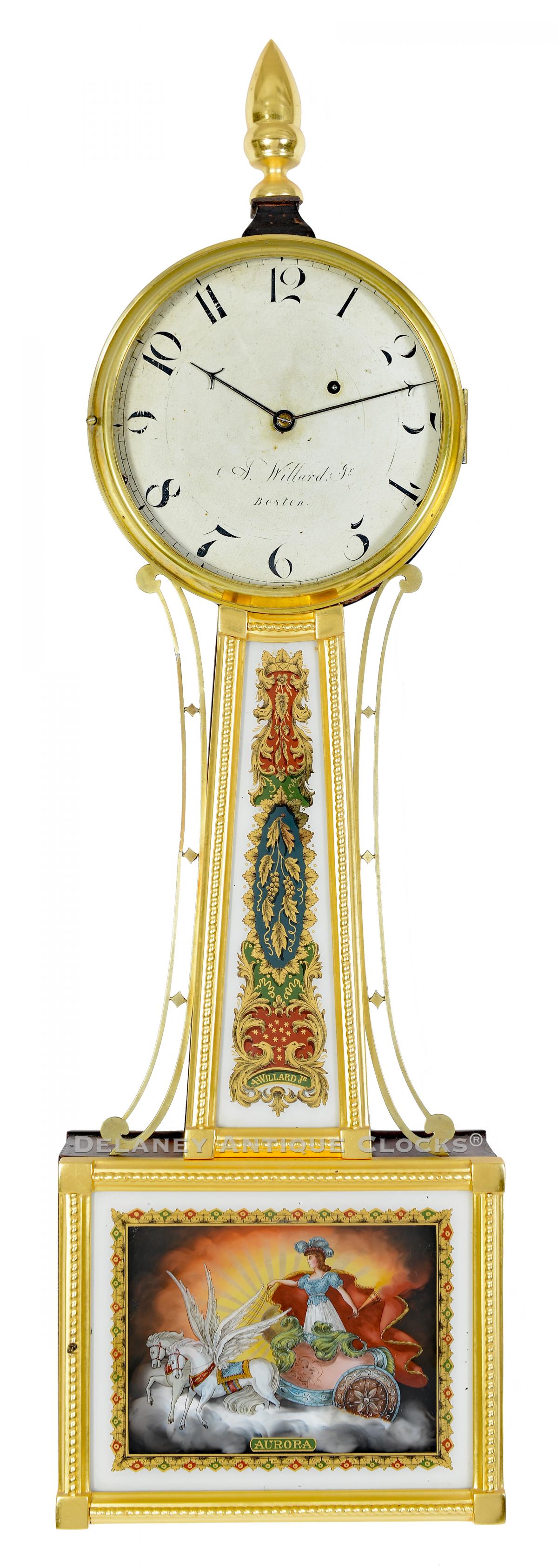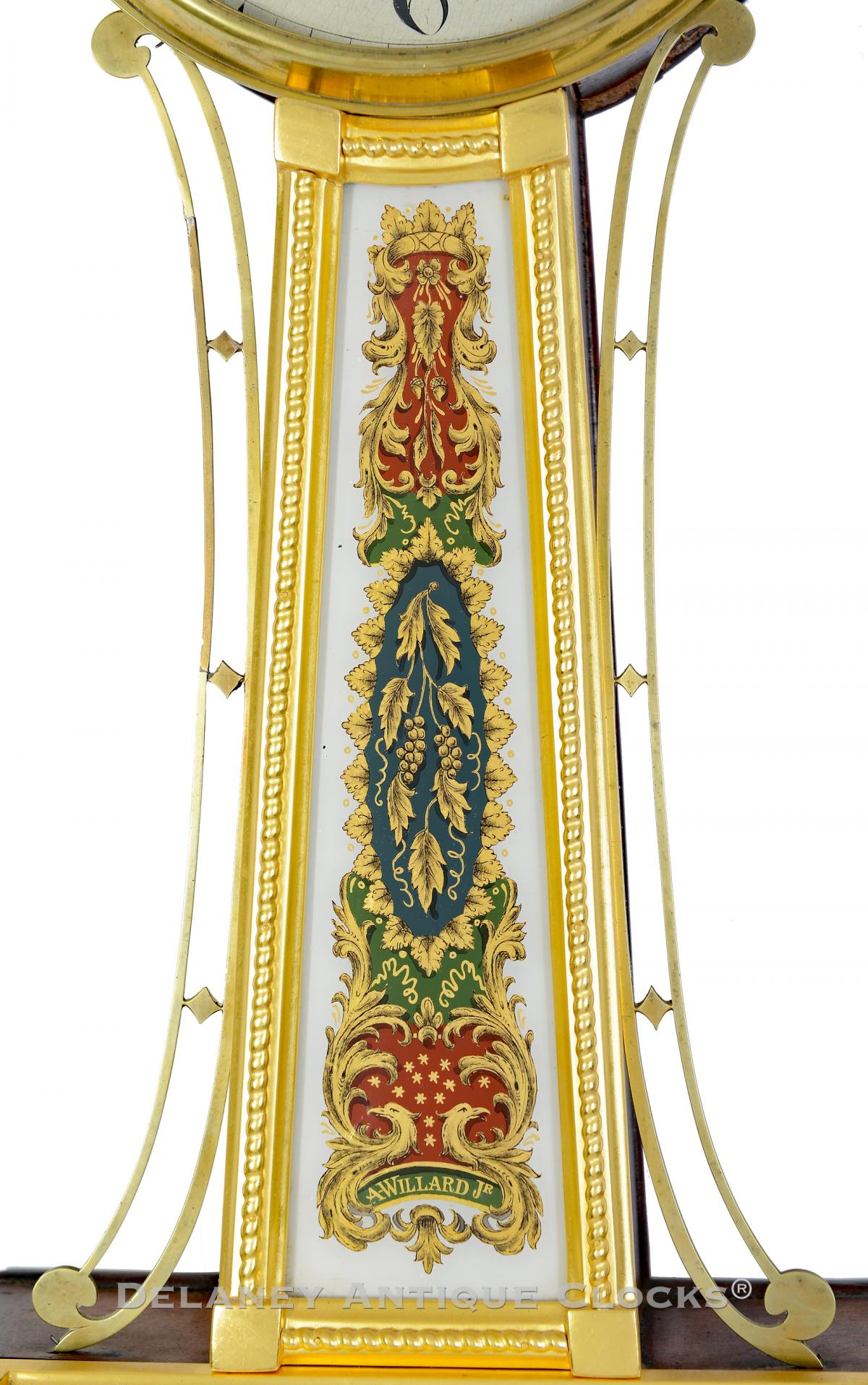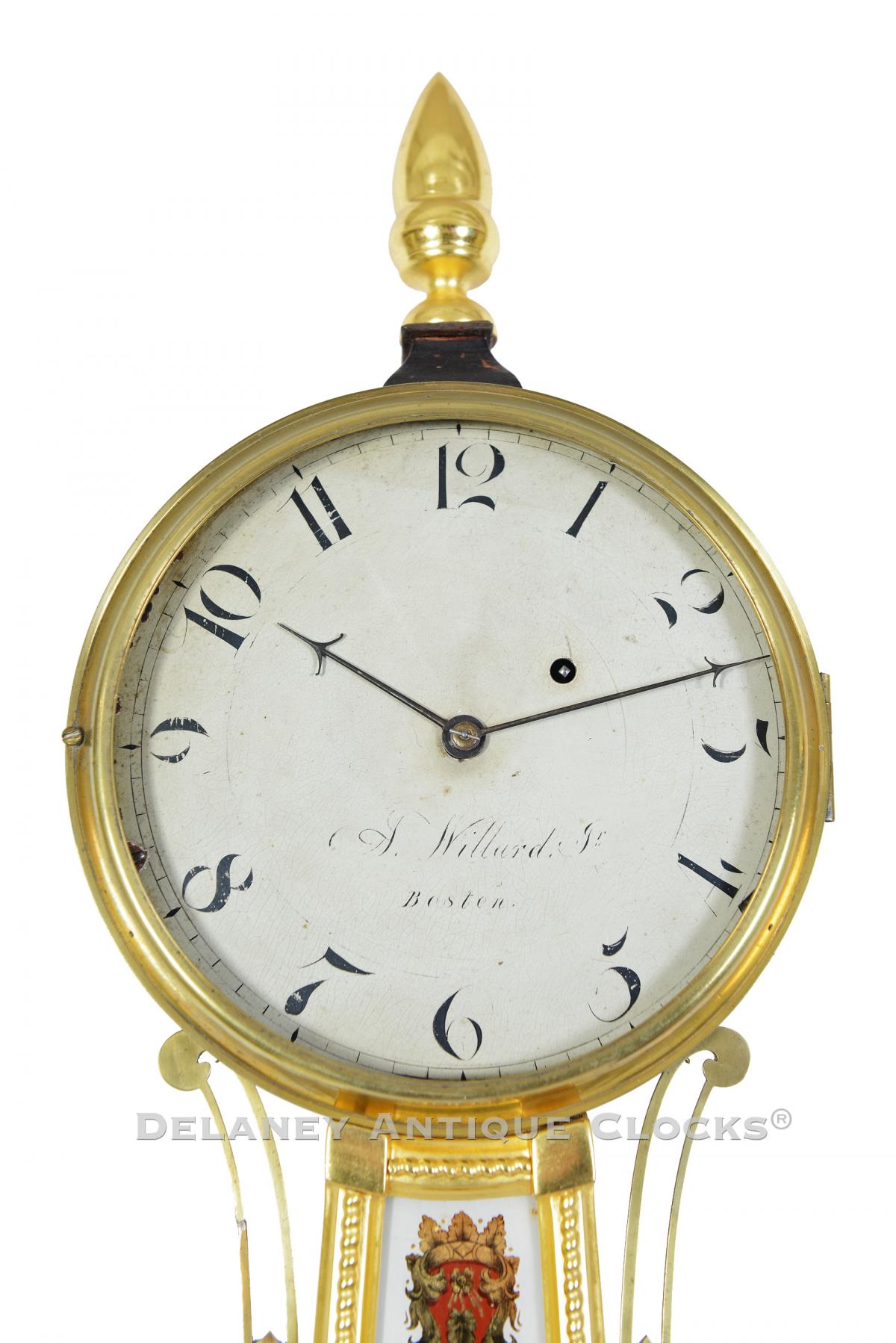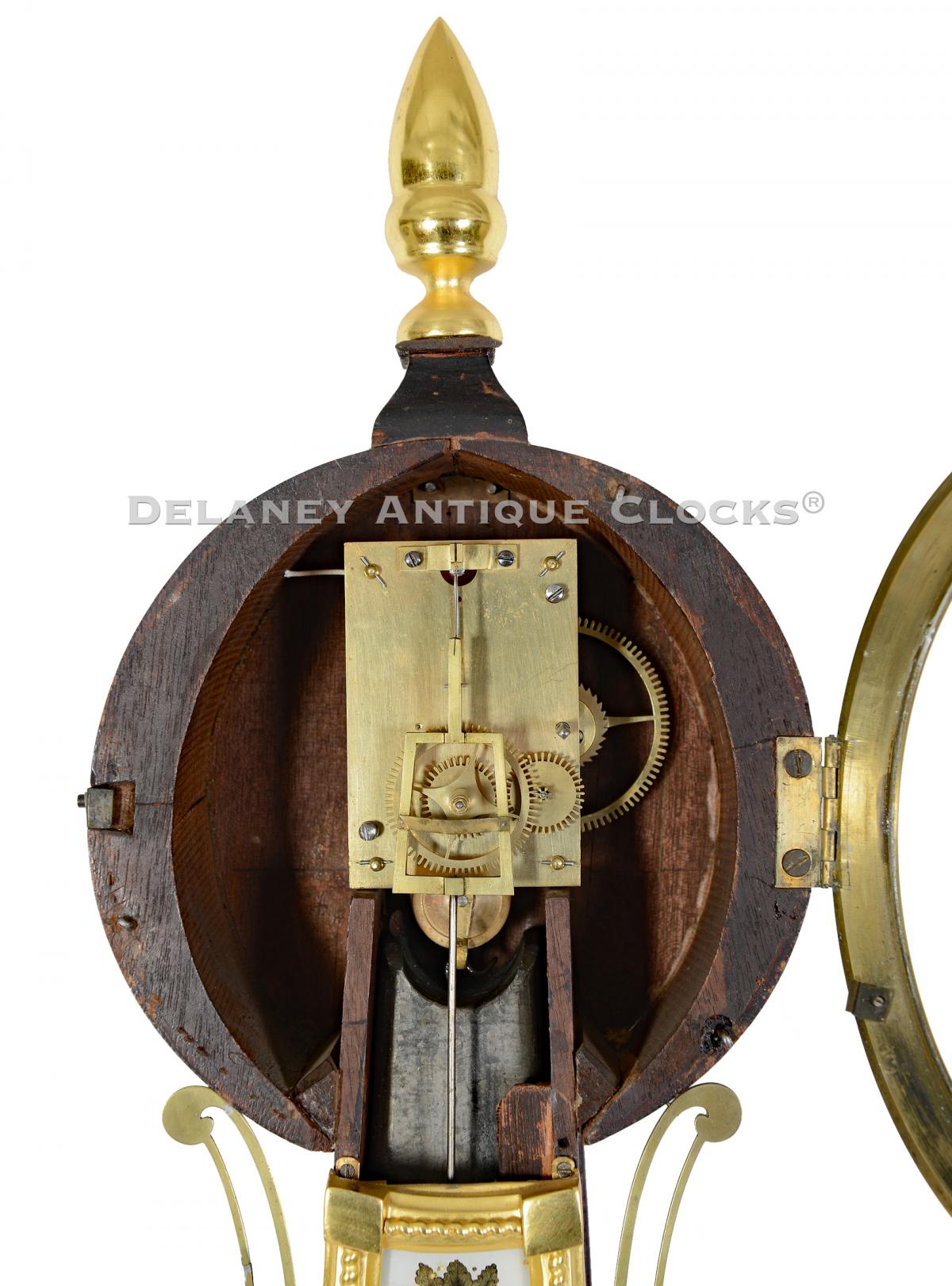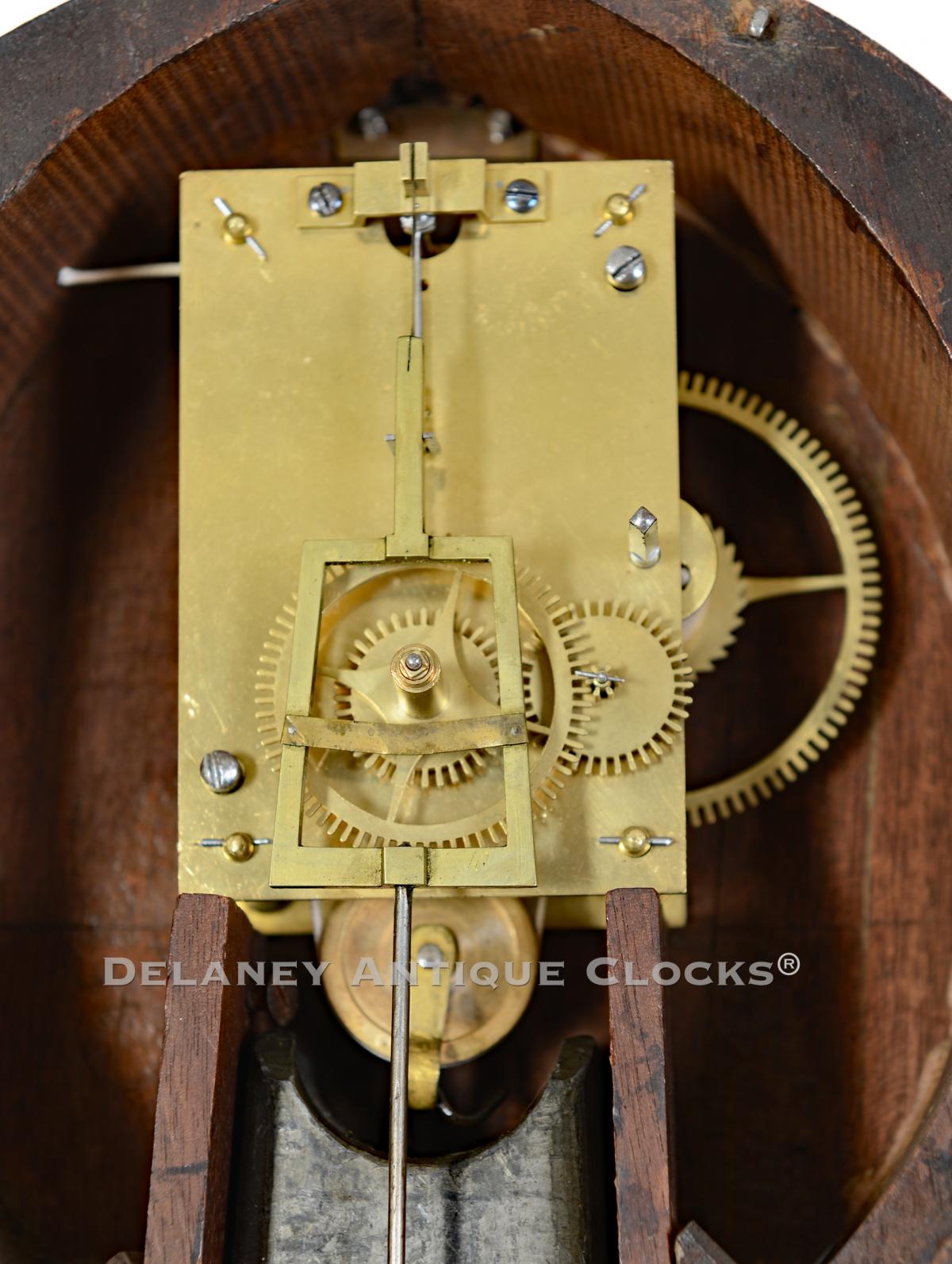Aaron Willard Jr. gilt frame wall timepiece or banjo clock made in Boston circa 1820. The lower tablet depicts “AURORA.” 223201.
This classic Federal Massachusetts Timepiece or “Banjo clock” was made by Aaron Willard Jr. of Boston, Massachusetts, circa 1820.
The case is constructed in mahogany and features rope-decorated frames finished in gilding. The re-gilded surfaces remain in excellent condition. The frames are fitted with reverse painted or eglomise tablets. The subject and detail work, enhanced by the vibrant colors, is of good quality. The lower tablet depicts “AURORA,” the Roman goddess of dawn. Aurora, also known as Eos, traveled across the sky each dawn to overcome the night in her pink chariot drawn by a pair of white-winged horses. Her daily route began each morning in the east, and she traveled west across the sky. She opened the gates of the day. She is poised with her right arm in an outstretched position, holding the reins and in control. In her left hand, she holds a torch. The small oval-shaped opening in the center allows one to view the motion of the brass-faced pendulum bob that swings behind the glass. The sun’s radiants extend from the oval out into the heavens. The throat tablet has traditional timepiece themes, including acanthus leaves, grapes, and stars. The colors used here complement those used in the lower tablet. At the bottom of the throat glass is a banner with the Clockmaker’s name, “A. WILLARD Jr.”
The sidearms, finial, and dial bezel are brass. The dial bezel is fitted with glass and opens to a painted iron dial.
The Maker’s name and working location are boldly signed and are still legible after 200 years. The signature reads, “A. Willard, Jr. / Boston. “Arabic hour numerals are used to demark the hours. The segmented minute ring includes dashes at each hour. Two elegantly hand-filed steel barbed hands show the time. A trait of most Aaron Willard Jr made wall clocks.
The time-only movement is weight-driven and designed to run for eight days on a full wind. Please note that the original lead time weight descends the channel in the center of the case directly below the works. The movement features brass construction. Two brass plates frame the gearing and are secured by four brass pillars. The movement is mounted to the backboard with two thru-bolts that are diagonally positioned on the plates. They secure the backplate to the wooden backboard. The pendulum is supported by a bridge suspension post. Overall, the movement is of excellent quality, which is typical of this Maker. The pendulum is constructed with a steel rod and a brass-faced lead bob. The brass face is, of course, visible through the lower opening in the glass. This motion indicates that the clock is operating.
This attractive clock measures approximately 34.5 inches long to the top of the finial. It was made circa 1820.
Inventory number 223201.
Aaron Willard Jr. was born in Roxbury, Massachusetts, on June 29, 1783. He had the good fortune of being born into America's leading clockmaking family. His father, Aaron, and uncle Simon had recently moved from the rural community of Grafton and began a productive career manufacturing high-quality clocks in this new ideal location. Based on the traditions of the day, it is thought that Aaron Jr. probably learned the skill of clockmaking from his family. We have owned a large number of wall timepieces or more commonly called banjo clocks, that this talented maker made. Based on the numbers seen in the marketplace, it is logical to assume he was one of the most prolific makers of this form. We have also owned a fair number of tall case clocks, Massachusetts shelf clocks, and gallery clocks. Aaron Jr. retired from clockmaking sometime around 1850 and moved to Newton, Massachusetts. He died on May 2, 1864


